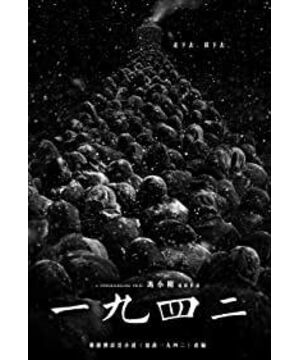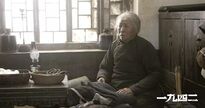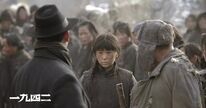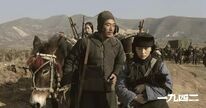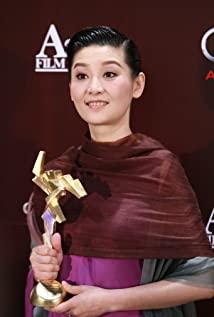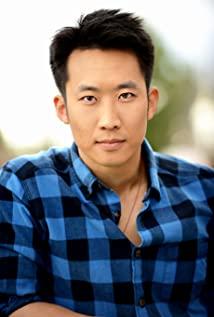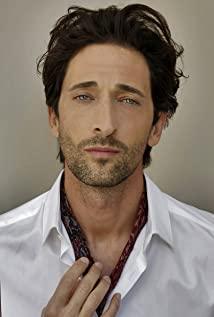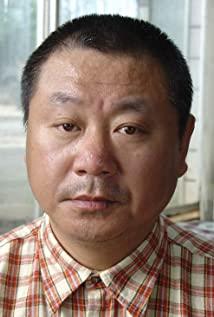bad film director made it again, what are you doing?
Although I don't know what the director was trying to make this film about, we can ask ourselves with good conscience, whether this film restores us a relatively objective and true story, which is not known to the majority of young people, and whether it can be erased or not. go history.
History is the common memory of people, and the bond that maintains a nation's emotions and relationships is the common memory. China has a large population, and Chinese people like to study history repeatedly.
Don't take a heavy heart before watching a movie. Feng Xiaogang didn't want to make the audience's tears at all, and he didn't want to kidnap the audience with a disaster film. He just told a story very calmly, a story that was a little boring than a novel and a little more interesting than a documentary. After reading this story, it's a matter of laughing or crying. It's all your own business.
Don't take this theme as a burden, it's just a piece of past history that doesn't require us to be responsible for these tragedies. Watching a movie is a kind of emotional enjoyment, and rational thinking is imposed on yourself, but it is not the movie that forces you to think about those painful and tiring problems. So don't use the metaphorical politics behind the film to talk about things, and don't be entangled in what human nature is. Just enjoy the film itself first.
Returning to the film, the director's skill is still reflected. Whenever I see you about to cry, the story will immediately divert your attention, make you hold back your tears, and occasionally add some dark humor, making you laugh and laugh.
The first time I watched the movie was 146 minutes, and I wondered if it would be too long. Later, after entering the movie, I completely forgot about it. It was simply overthinking. The film of more than 2 hours tells a story that can't be calmed down in a flat and straightforward way, resulting in a particularly strong sense of helplessness and psychological contrast. Except for the part about the priest, which seems contrived and procrastinated, the rest of the story goes smoothly.
The story is divided into two clues: one is the people on the road to escape, and the other is the Kuomintang government. It can switch freely between Henan and Chongqing, forming a strong contrasting effect.
A screenplay adapted from a novel to a movie is better. Some of the lines in the play are still worth pondering.
In the face of the great famine, people can ignore everything; but in the face of the great famine, people will still have the final bottom line.
The main line of the escape road basically revolves around the old club. The old club has experienced a very dramatic escape from the famine, from pain and struggle to resentment and helplessness, from the initial prosperity to the final death of the whole family, leaving him alone, really tell you what it means to be in turmoil , the era of famine refugees.
In the face of disasters, female characters such as Huazhi and Xingxing have to make some choices that are painful, helpless, but full of hope for survival, which can be regarded as a modest contribution to the survival of the family.
Shuan Zhu's emotional obsession with children is compared with the old horse's "life-saving" belief. Although it is a bit pretentious, it is still very realistic to differentiate a loyal groom as a Chinese slave and a smooth chef as a Japanese slave. The ending is brutally presented. Despair and pain.
On the government side, Li Peiji's sympathy for the people's devotion is in contrast to Jiang Dingwen's ruthless contempt for refugees. In the end, Li Peiji also expressed his helplessness towards the officialdom, as well as the form-oriented slogan rehearsal and the tragic bullying campaign, which showed the substantive corruption and incompetence of the Kuomintang government. The truth of the facts can only be restored and paid attention to by a foreign reporter breaking through layers of obstacles and reporting it to Chiang Kai-shek.
There are not many soundtracks in the movie, and there is no intention to incite people's emotions. To be honest, a movie with a running account of more than two hours is very much like a documentary. But in this story with a rational tone, the director seems to be holding a delicate emotional whip, slowly whipping your heart again and again. You hurt a little, let you slow down again, and repeat.
I personally prefer a calm narrative method, which can make you feel the pain and helplessness, struggle and indifference of the story itself.
Finally, for those audiences who dislike the director's lack of sharpness and scale, we should borrow a sentence from Li Peiji in the film: "If the government does not provide disaster relief, you will sigh for a long time. Now that the government has rescued the disaster, you are arguing and fighting here again." The director has tried his best to restore it. , the story appears real precisely because it is what we expected it to be. As for those viewers who want to watch cannibalism or more brutal and bloody scenes, I suggest you either read the novel, or make a film of this scale and release it in China, setting a precedent for us.
In fact, we should be grateful and encourage sincere directors and actors to create such a film. To be a human being is to be content and to be contented, instead of clamoring around all day that I only watch the uncensored foreign cut version, or start talking shit and despise the junk "commercial" movies that are "hard to make money" before watching the movie.
View more about Back to 1942 reviews


